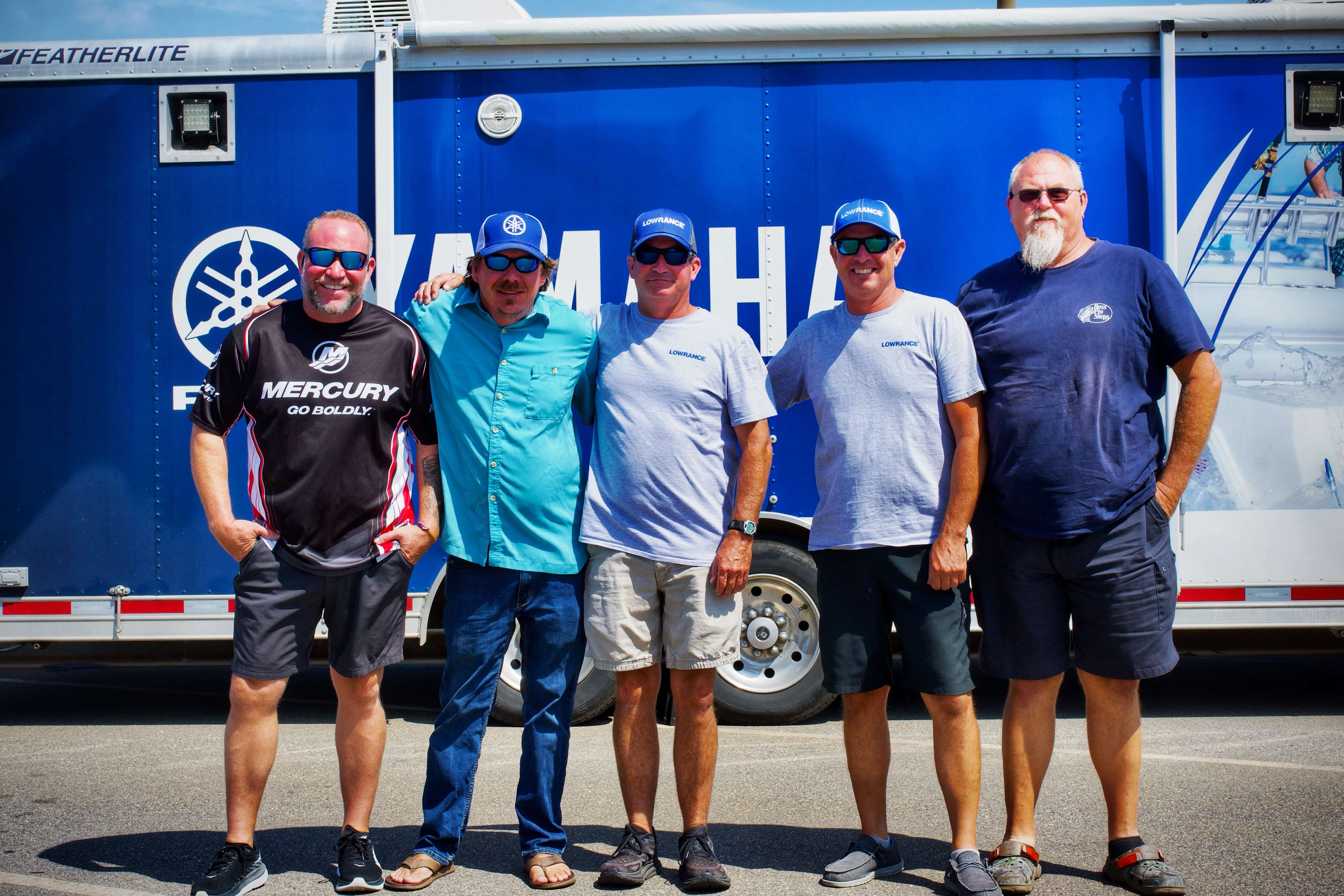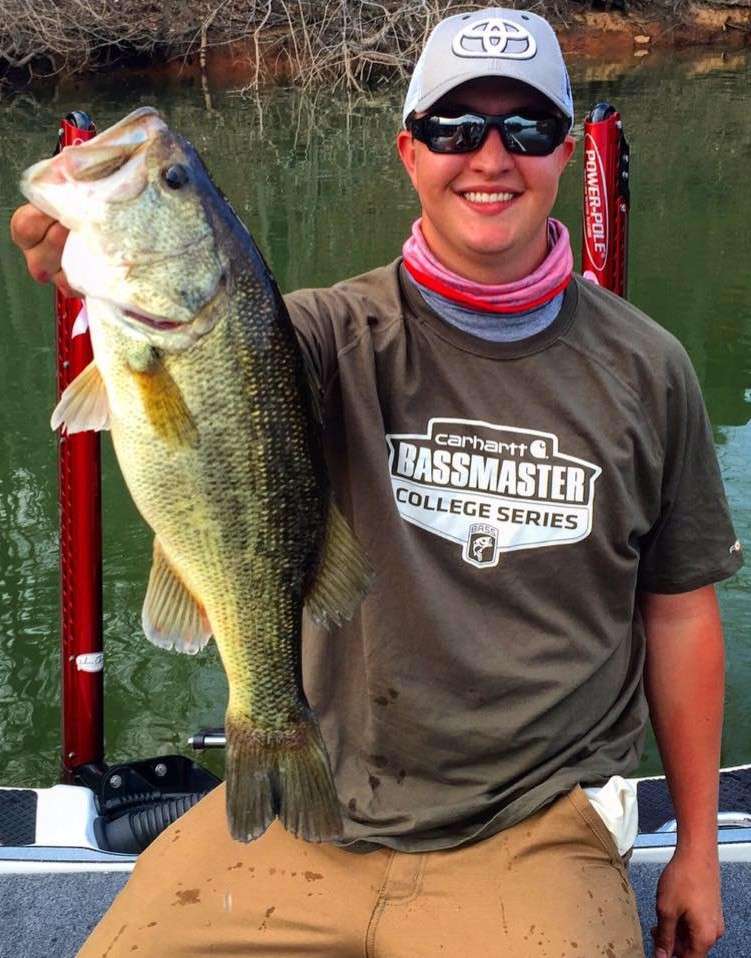
A few hundred yards away from the bright lights of the Bassmaster stage at the 2024 Strike King College Series National Championship sits an equally important part of high-level tournaments; the boat yard. The boat yard is manned by the service crew, who are the true unsung heroes of every level of tournament bass fishing.
These guys stand at-the-ready to help fix any issues, mechanical mishaps, and help problem solve any pickle college anglers find themselves in this week on Lake Hartwell. They are employed by different brands and may wear competitive logos, but the truth is they all work together and are willing to lend a helping hand regardless of what product an angler needs help with.
They are here at 5AM before tournament launch and are oftentimes the last ones to leave the parking lot in the evening after the sun goes down.
The technicians standing guard at the college National Championship this week are Scott Schmitt from Yamaha Outboards, Lance Lewis and Brian Lasater from Lowrance, Mark Martin with Tracker Marine, and Jesse Cloud with Mercury. While they cooked lunch in the parking lot of the impressive Green Pond Landing facility, we asked what tips they have for college anglers to, ideally, stay out of the Boat Yard at during tournament time.
“Yamaha’s slogan of ‘maintenance matters’ could not be more spot on,” Yamaha technician Scott Schmitt said. “It’s usually the simple things that get tournament anglers, whether we’re at college and high school tournaments or the Bassmaster Elite Series, we see a lot of the same things. Take the time to do a walk around your boat and trailer in the morning. It’ll save you a lot of time and frustration in the long run.”
As though they were all speaking from the same collective brain, they each offered simple solves to potential alarms or issues like checking your oil level regularly, or inspecting battery connections if something is array electronically. And they all agreed that the following three tips are things tournament anglers of all levels should practice.
Trailer maintenance
Before your boat ever makes it to the ramp, anglers should start every trip by inspecting their trailer. Check the wear on your tires, the tire pressure, and ensure trailer lights are functioning properly. Make sure you have a spare tire.
At every gas stop en route to your fishing hole, do a quick lap around your rig and touch the hubs on your wheels. If they are hot or leaking grease, you’ve got a problem that needs attention.
“My grandpa told me years ago that a boat is only as good as it’s trailer, and it’s true,” Lowrance’s Lance Lewis said. “You can spend $25 on grease and a grease gun and keep your axels greased up. That’ll save you a lot of money and time on repairs down the road.”
Check your lights
After you make it to the boat ramp, the next thing the service crew suggests is to turn on your power and check to see if your running lights are working. Even this morning during the most important college tournament of the season, there were at least three boats who lost fishing time due to their running lights not working correctly.
There is nothing worse than missing the morning bite while you’re off to the side trying to troubleshoot a light issue.
“I’ve noticed younger anglers are bad about not turning on their lights until they get on the water,” Schmitt said. “It’s a whole lot easier for us to help you before you launch your boat. While you’re waiting in line, turn your lights on and then have a backup plan. You can buy a portable light to clamp onto your trolling motor for $30 that’ll keep you legal and safe in a pinch.”
Carry a basic tool kit
The last bit of advice Schmitt and the rest of the service crew offered is to carry a basic tool kit in your boat loaded with hardware specific to your vessel. Things like extra fuses, a wire stripper / crimping tool, screwdrivers, the right sized socket or wrenches for your batteries, an extra prop for your trolling motor or outboard, and even a jump box if possible.
You never know what situation you or a fishing buddy may be in, but if you fish long enough and travel to enough events, chances are you will eventually find yourselves up a creek. Make sure you are not without a paddle when these scenarios arise. Take the proper steps to ensure your rig is tournament ready and be prepared for unexpected problems on the water.





